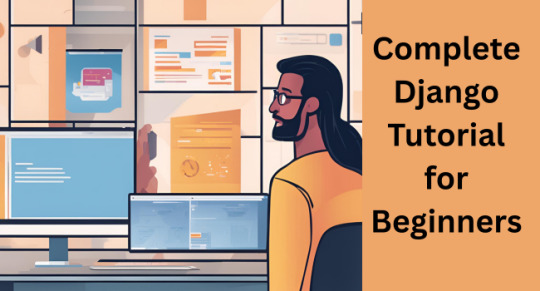#Django Tutorial
Explore tagged Tumblr posts
Text

Django Tutorial
Learn to build powerful web applications with Django, the high-level Python web framework. This beginner-friendly tutorial covers everything from setup to deployment.
Visit our website: https://www.tpointtech.com/django-tutorial
0 notes
Text
Learn Django from Scratch: Beginner-Friendly Tutorial to Master Web Develop
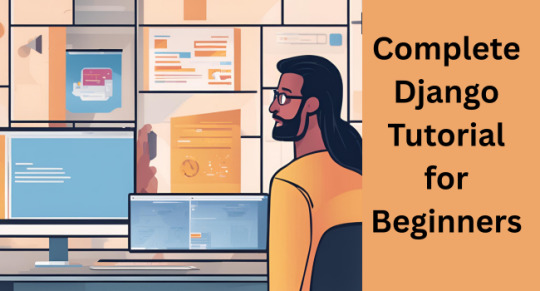
If you are new to web development and looking for an easy way to build websites, then this Django Tutorial for Beginners is just for you. Django is a high-level web framework written in Python. It helps developers build secure, fast, and scalable websites easily. The best part? It handles many common tasks so you can focus on building your project.
Django follows the “Don’t Repeat Yourself” principle. This means it saves your time by reusing code and giving you built-in tools for common website features like login, admin panels, and forms. Beginners love Django because it comes with clear documentation and a strong community ready to help.
To get started, you simply install Python and Django, create a project, and run the server. It may sound technical, but with step-by-step guidance, even someone with no coding experience can understand it. This tutorial walks you through each step in an easy and friendly way.
You will learn how to organize your project, connect it to a database, and create basic web pages. You won’t need to learn everything at once—just follow along and grow your skills as you go.
Whether you want to build a blog, portfolio, or a small online shop, Django gives you the tools to do it right.
For a complete and beginner-friendly guide, check out Django Tutorial for Beginners
0 notes
Text
Django Tutorial for Beginners: Build Your First Web App
visit the blog: https://tpointtechblog.hashnode.dev/django-tutorial-for-beginners-build-your-first-web-app
visit for more blog: https://dev.to/tpointtechblog/getting-started-with-power-bi-beginners-guide-54ef
https://medium.com/@tpointtechblog/kafka-tutorial-learn-apache-kafka-with-practical-examples-bdd37de7a887
https://velog.io/@tpointtechblog/PHP-Tutorials-for-Web-Developers-Create-Dynamic-and-Interactive-Sites
https://qiita.com/Ronaldo2345/items/9504dd2165c42f388f05
https://www.linkedin.com/pulse/nodejs-tutorial-learn-backend-development-javascript-udhav-khera-gk7rc
https://www.patreon.com/user?u=169347449
0 notes
Text
0 notes
Text
Unveiling the Magic of Django: A Simple Tutorial
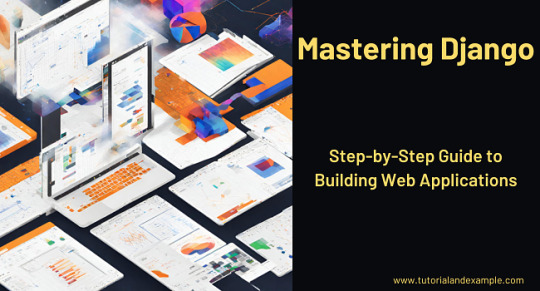
Are you a coding enthusiast eager to build powerful web applications? Look no further – let's dive into the world of Django with this user-friendly tutorial.
Django Tutorial: Getting Started
Begin by understanding the basics of Django – a high-level Python web framework. Follow the step-by-step guide to set up your development environment and create your first Django project. The tutorial covers everything from installing Django to creating models, views, and templates.
Design Patterns in Python: A Key Ingredient
Learn the essence of design patterns in Python and how they enhance the structure of your code. Discover the Singleton, Observer, and Factory patterns, among others, and witness how they contribute to cleaner, more maintainable Django projects.
Why Choose Django?
Explore the reasons why Django stands out for web development. From its built-in admin panel to the powerful Object-Relational Mapping (ORM) system, Django streamlines the development process, making it an ideal choice for both beginners and experienced developers.
Ready to Begin?
Embark on your Django journey today! Follow this tutorial for a hands-on experience in creating dynamic web applications effortlessly.
Source: Tutorial and Example - Django Tutorial
With this resource, you have a reliable guide to mastering Django, making your web development endeavors enjoyable and rewarding.
0 notes
Text

django
#movies#django#quentin tarantino#cowboys#django unchained#movie review#my artwrok#my art#artists on tumblr#art#artwork#art wip#artworld#digital art#cowboy#sketch#film#lol#drawing#my post#tutorial#idk how to tag this#help#idk
53 notes
·
View notes
Text
if you need to learn something and you're impatient about it, pirate a textbook. do not google it, looking at random webpages, or looking at youtube. its not faster. you can't page through it. you can't skim it. there's more shit to click and it's like never centralized 30% of the time. a book has a table of contents and usually images and practice problems
#i'm learning django 500x faster than my stupid ass literally just downloading a textbook#i hate youtube tutorials i just cant do it anymore i cant stand tutorial hell#color.txt
10 notes
·
View notes
Text
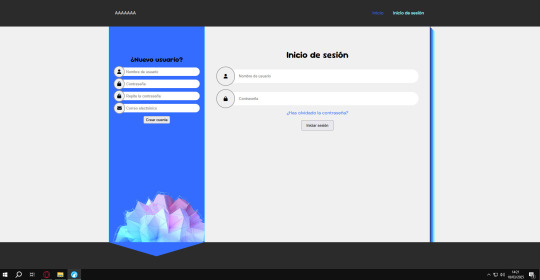
This is the only thing I have so far in my new project. 😀
I want to create a web page where you can track which books are you reading (nothing revolutionary). I'm only making this for practice because I have no idea how Django works, how to interact with a database, dynamic web pages, more Docker stuff, etc.
I think there isn't much I can keep doing with plain HTML/CSS (besides this and a Home page), I think anything else will be for Django?
#i have no idea how to use django yet... i have installed it but thats it i need to watch more tutorials and read more docs#my class is only for frontend so im on my own for this xD
0 notes
Text
What’s the Big Deal About Python?
If you’ve been around the tech world even for a minute, you’ve probably heard people raving about Python. No, not the snake, we’re talking about the programming language. But what’s so special about it? Why is everyone from beginner coders to AI researchers using Python like it’s their best friend? Let’s break it down in simple words.

Easy to Learn, Easy to Use
First things first, Python is super easy to learn. The code looks almost like regular English, which means you don’t have to memorize weird symbols or endless rules. If you’re just starting your programming journey, Python won’t scare you away.
For example, printing a sentence in Python is as simple as:

That’s it. No extra setup, no confusing syntax. It just works.
Used Everywhere
Python isn’t just for small scripts or learning projects. It’s everywhere, web development, data science, automation, artificial intelligence, game development, even robotics.
Big companies like Google, Netflix, and Instagram use Python behind the scenes to make their products work better.
Huge Library Support
One of the best things about Python is its rich library ecosystem. Libraries are like pre-written tools that help you do complex stuff without writing all the code yourself. Want to analyze data? Use Pandas. Want to build a web app? Try Django or Flask. Want to build a chatbot or train a machine learning model? There’s TensorFlow and PyTorch for that.
Great Community
Python has a massive community. That means if you ever get stuck, there’s a good chance someone has already solved your problem and posted about it online. You’ll find tons of tutorials, forums, and helpful folks willing to guide you.
Not the Fastest, But Fast Enough
Python isn’t the fastest language out there — it’s not meant for super high-speed system-level programming. But for most tasks, it’s more than fast enough. And if you really need to speed things up, there are ways to connect Python with faster languages like C or C++.
So, Should You Learn Python?
Absolutely. Whether you’re a student, a hobbyist, or someone switching careers, Python is a great place to start. It’s beginner friendly, powerful, and widely used. You’ll be surprised how much you can build with just a few lines of Python code.
2 notes
·
View notes
Text
Top Free Python Courses & Tutorials Online Training | NareshIT
Top Free Python Courses & Tutorials Online Training | NareshIT
In today’s tech-driven world, Python has emerged as one of the most versatile and popular programming languages. Whether you're a beginner or an experienced developer, learning Python opens doors to exciting opportunities in web development, data science, machine learning, and much more.
At NareshIT, we understand the importance of providing quality education. That’s why we offer free Python courses and tutorials to help you kick-start or advance your programming career. With expert instructors, hands-on training, and project-based learning, our Python online training ensures that you not only grasp the fundamentals but also gain real-world coding experience.
Why Choose NareshIT for Python Training?
Comprehensive Curriculum: We cover everything from Python basics to advanced concepts such as object-oriented programming, data structures, and frameworks like Django and Flask.
Expert Instructors: Our team of experienced instructors ensures that you receive the best guidance, whether you're learning Python from scratch or brushing up on advanced topics.
Project-Based Learning: Our free tutorials are not just theoretical; they are packed with real-life projects and assignments that make learning engaging and practical.
Flexible Learning: With our online format, you can access Python tutorials and training anytime, anywhere, and learn at your own pace.
Key Features of NareshIT Python Courses
Free Python Basics Tutorials: Get started with our easy-to-follow Python tutorials designed for beginners.
Advanced Python Concepts: Dive deeper into topics like file handling, exception handling, and working with APIs.
Hands-on Practice: Learn through live coding sessions, exercises, and project work.
Certification: Upon completion of the course, earn a certificate that adds value to your resume.
Who Can Benefit from Our Python Courses?
Students looking to gain a solid foundation in programming.
Professionals aiming to switch to a career in tech or data science.
Developers wanting to enhance their Python skills and explore new opportunities.
Enthusiasts who are passionate about learning a new skill.
Start Learning Python for Free
At NareshIT, we are committed to providing accessible education for everyone. That’s why our free Python courses are available online for anyone eager to learn. Whether you want to build your first Python program or become a pro at developing Python applications, we’ve got you covered.
Ready to Dive into Python?
Sign up for our free Python tutorials today and embark on your programming journey with NareshIT. With our structured courses and expert-led training, mastering Python has never been easier. Get started now, and unlock the door to a world of opportunities!
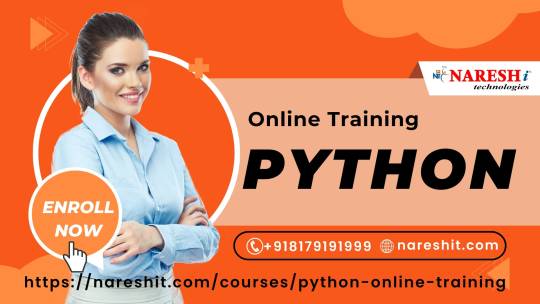
#python#pythontraining#freepythoncourse#onlinetraining#coding#pythontutorials#pythonforbeginners#programming#pythononline#learnpython#softwaretraining#freelearning#pythonprogramming#onlinetutorial#techtraining#pythoncourses#onlineeducation#pythoncode#codingforbeginners
2 notes
·
View notes
Text
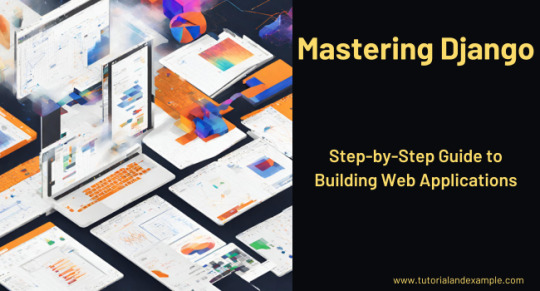
Elevate your coding skills with TAE's Django Tutorial, a professional source delivering in-depth insights. Master web development as you follow our meticulously crafted guide, from fundamentals to advanced techniques.
0 notes
Text
New Year's Resolutions
Hey everybody. It's a new year. Happy New Year!
Gamedev Blogging
Last year I have fallen behind on posting gamedev stuff. It's mostly because there is no good way to format code listings in the new editor. So this year, I am not even going to try eith gamedev tutorials on tumblr. I might post them elsewhere and just link them. I have already taken a look at Cohost, but It doesn't have the features I need. Wouldn't it be cook if you could post pico-8 carts on cohost? Or source code listings? Or LaTeX? I might as well write the HTML by hand and host it somewhere. But that won't be the focus of this blog in 2024.
Instead I'm going to do more tumblr posting about game design, just less on the code side. It will be more on the screenshot side. First thing will be about my 2023 Game Of The Year. It will probably surprise you. I did not expect it to be this good. You can also expect something about some of my old prototypes. Over the years I have started and abandoned game prototypes after either concluding that the idea won't work and can't be made to work, or after learning what I needed to learn. What did I learn? Wait and find out!
Computer Litaracy
I'll also attempt to write more about general computing and "computer literacy" topics. I have two particular "series" or "categories" in mind already. Almost Good: Technologies that sound great when you hear abut them, but that don't work as well as you might think when you try them out. Harmful Assumptions About Computing: Non-technical people often have surprising ideas about how computers work. As a technically inclined person, you don't even realise how far these unspoken assumptions about computers can reach.
Usability of computers and software seems to have gotten worse rather than better in many aspects, while computers have become entrenched in every workplace, our private lives, and in our interactions with corporations and government services. Computer literacy has also become worse in certain ways, and I think I know some reasons why.
There will also be some posts about forum moderation and community management. It's rather basic and common-sense stuff, but I want to spell it out.
Actual Game Development
I am going to release a puzzle game in 2024. You will be able to buy it for money. You can hold me to it. This is my biggest New Year's Resolution.
I will continue to work on two games of mine. One will be the game I just mentioned. The other is Wyst. I put the project on ice because I was running out of inspiration for a while, but I think I am sufficiently inspired now. I will pick it up again and add two more worlds to the game, and get it into a "complete" state. I'll also have to do a whole lot of playtesting. This may be the last time I touch Unity3d.
I will try out two new engines and write one or two proof-of-concept games in each of them, maybe something really simple like "Flappy Bird", and one game jam "warm-up" thing, with the scope of a Ludum Dare compo game. Maybe that means I'll write Tetris or Pong multiple times. I probably won't put the "Pong in Godot" on itch.io page next to a "Pong in Raylib" and "Pong in Bevy", but I'll just put the code on my GitHub. The goal is to have more options for a game jam, so I can decide to use Godot if it is a better fit for the jam topic.
In the past, I have always reached for PyGame by default, because Python is the language that has flask and Django and sqlalchemy and numpy and pyTorch, and because I mostly want to make games in 2D. I want to get out of my comfort zone. In addition to the general-purpose game engines, I will try to develop something in bitsy, AGS, twine, pico-8 or Ren'Py. I want to force myself to try a different genre this way. Maybe I'll make an archaeologist dating simulator.
All in all, this means I will so significant work on two existing projects, revisit some old failed prototypes to do a postmortem, I'll write at least six new prototypes, and two new jam games, plus some genre/narrative experiments. That's a lot already. So here's an anti-resolution: I won't even try to develop any of my new prototypes into full releases. I will only work on existing projects from 2023 or before if I develop anything into playable demo versions or full games. I won't get sidetracked by the next Ludum Dare game, I promise. After the jam is over, I'll put down the project, at least until 2025.
8 notes
·
View notes
Text
How do I learn Python in depth?
Improving Your Python Skills
Writing Python Programs Basics: Practice the basics solidly.
Syntax and Semantics: Make sure you are very strong in variables, data types, control flow, functions, and object-oriented programming.
Data Structures: Be able to work with lists, tuples, dictionaries, and sets, and know when to use which.
Modules and Packages: Study how to import and use built-in and third-party modules.
Advanced Concepts
Generators and Iterators: Know how to develop efficient iterators and generators for memory-efficient code.
Decorators: Learn how to dynamically alter functions using decorators.
Metaclasses: Understand how classes are created and can be customized.
Context Managers: Understand how contexts work with statements.
Project Practice
Personal Projects: You will work on projects that you want to, whether building a web application, data analysis tool, or a game.
Contributing to Open Source: Contribute to open-source projects in order to learn from senior developers. Get exposed to real-life code.
Online Challenges: Take part in coding challenges on HackerRank, LeetCode, or Project Euler.
Learn Various Libraries and Frameworks
Scientific Computing: NumPy, SciPy, Pandas
Data Visualization: Matplotlib, Seaborn
Machine Learning: Scikit-learn, TensorFlow, PyTorch
Web Development: Django, Flask
Data Analysis: Dask, Airflow
Read Pythonic Code
Open Source Projects: Study the source code of a few popular Python projects. Go through their best practices and idiomatic Python.
Books and Tutorials: Read all the code examples in books and tutorials on Python.
Conferences and Workshops
Attend conferences and workshops that will help you further your skills in Python. PyCon is an annual Python conference that includes talks, workshops, and even networking opportunities. Local meetups will let you connect with other Python developers in your area.
Learn Continuously
Follow Blogs and Podcasts: Keep reading blogs and listening to podcasts that will keep you updated with the latest trends and developments taking place within the Python community.
Online Courses: Advanced understanding in Python can be acquired by taking online courses on the subject.
Try It Yourself: Trying new techniques and libraries expands one's knowledge.
Other Recommendations
Readable-Clean Code: For code writing, it's essential to follow the style guide in Python, PEP
Naming your variables and functions as close to their utilization as possible is also recommended.
Test Your Code: Unit tests will help in establishing the correctness of your code.
Coding with Others: Doing pair programming and code reviews would provide you with experience from other coders.
You are not Afraid to Ask for Help: Never hesitate to ask for help when things are beyond your hand-on areas, be it online communities or mentors.
These steps, along with consistent practice, will help you become proficient in Python development and open a wide range of possibilities in your career.
2 notes
·
View notes
Text
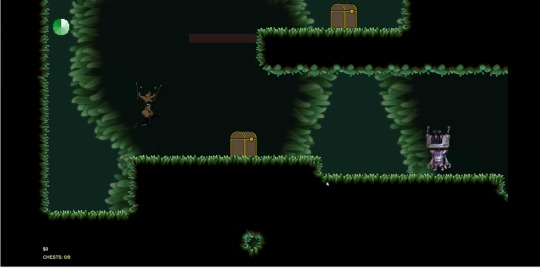
The 35th edition of the 2024 Richard Murray Newsletter.
topics
The sixty-seventh of the Cento series. A cento is a poem made by an author from the lines of another author's work. In the series I place my cento and a link to the other authors poem.
Womens History Month 2024
Human Spice Potion tutorial
The Spirit Coop
Introduction to The Sermon On The Hand and the Cordatitudes
Le Gateau Marche Avec Musique Et Entremets
Dates- astrology , astronomy , priceisright , regionalism
IF YOU MADE IT THIS FAR : Halle Berry and the evil in a thespians life , Django unchained , KWL marketing with melissa storm , Dodes'ka-den , Psycho Bliss from mystic-skillz , Skeleton Fight - from Ray HArryhausen , Tonfa Girl Game Prototype from Dualmask
URL https://rmnewsletter.over-blog.com/2023/11/09/01/2024-rmnewsletter.html
#rmnewsletter
#rmnewsletter#rmaalbc#aalbc#womenshistorymonth#tutorial#potion#human#spice#spiritcoop#kolchak#composition#ink#calligraphy#sermononthehand#cordatitudes#black#history#dos#heritage#gateau#marche#musique#entrements#dates#astrology#astronomy#priceisright#regionalism#poetryormore#xicotencatl
2 notes
·
View notes
Text
Django and Celery for Asynchronous Tasks
Introduction Asynchronous tasks are crucial for performing time-consuming operations, such as sending emails, processing images, or executing background jobs, without blocking the main application flow. Celery is a powerful, production-ready task queue system that integrates seamlessly with Django. This guide will walk you through setting up Celery in a Django project, configuring it to handle…
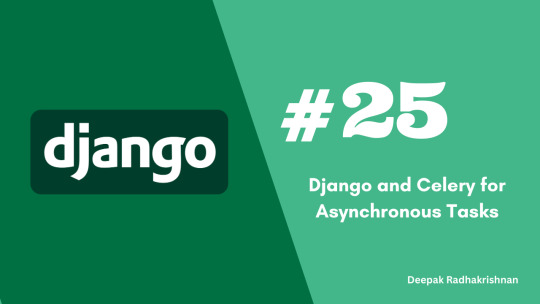
View On WordPress
#Asynchronous tasks#Celery with Django#Django background jobs#Django Celery#Django Tutorial#Python task queue
0 notes
